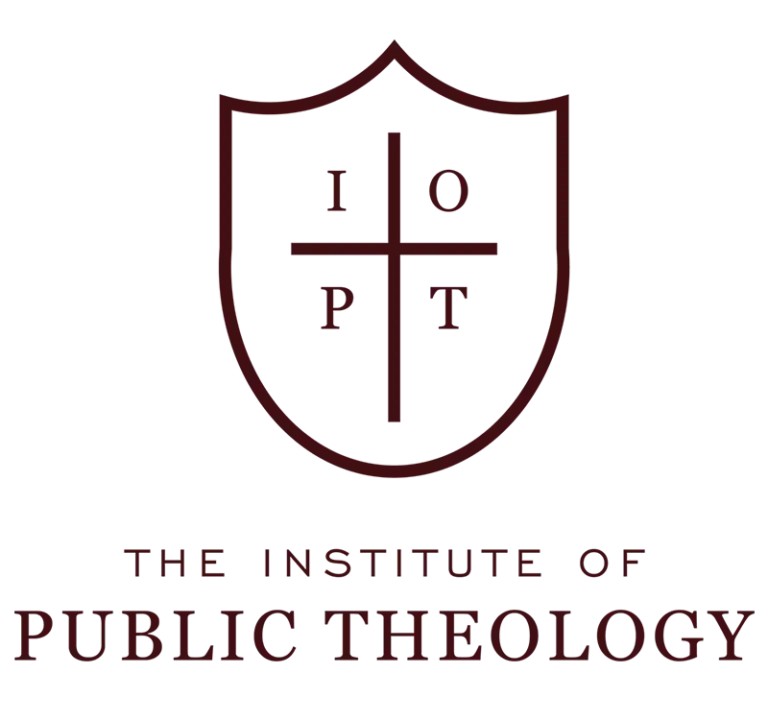Having established a church in Philippi (Acts 16) where there was no synagogue, Paul now, having suffered in Philippi at the hands of Romans (16:19-24), goes to Thessalonica and uses the synagogue on three Sabbath days to reason with the Jews and “devout” Greeks from the Scripture (Acts 17:1-4). We are told that his method consisted of “explaining and proving that it was necessary for the Christ to suffer and to rise from the dead, and saying, ‘This Jesus whom I proclaim to you, is the Christ.’” Many of those who heard his biblical exposition believed his message. Some Jews were offended and jealous (Acts 17:5) of Paul’s ability in expository reasoning. They resisted strongly the idea that the Messiah had come and they were not privy to this most historically pivotal event. How is this “Jesus” qualified as Messiah and why are Gentiles received as his people? This Paul is an imposter speaking of behalf of another imposter and deserves to be driven from the city. They appealed to the city authorities under the hypocritical guise of loyalty to Caesar. The entire controversy centered on the validity of Paul’s understanding of the Scripture and whether he was qualified to discern that Jesus was the Christ. Paul’s correspondence with the church at Thessalonica, therefore, had much material about the word of God vis a vis the authority of the apostle.
His preached word he and they believed was the Word of God. When they heard Paul preach, they accepted it, not simply as a man’s interpretation of verses compared to events, but as the “word of God.” Paul affirmed their conviction as the truth (1 Th 2:13). “Our gospel,” Paul recalled, came in the power of the Holy Spirit and brought them to be among the believers of Macedonia (1 Th 1:4, 5). He reminded them that, though pummeled in Philippi because of his preaching, he did not change the message. His “exhortation does not come from error” and is neither impure nor deceitful, but arises from one who was “approved by God to be entrusted with the gospel” (2:2-4). He was an “apostle of Christ,” and consequently a man of authority but used this authority only to “impart to you … the gospel of God.” Paul never wavered, even in the face of hostility and persecution, from his claim before the world that he was appointed by the risen Christ as an apostle. He never amended any teaching given in the context of that calling as possibly misperceived or as a matter of speculation or only informed opinion. This is one of the stubborn facts that must be considered when we ask if we have a word of truth about God and eternity. Has God spoken? In conjunction with the Hebrew prophets, Paul gives an unequivocal “Yes.”
When he gave further instruction on individual doctrines he wrote with confidence of God’s revelation: “For this we say to you by the word of the Lord that we who are alive and remain until the coming of the Lord will not precede those who have fallen asleep, etc” (1 Th. 4:15-18). An articulation of the relation of the living to the dead in the context of the return of Jesus who “died and rose again,” events surrounding his return, and the manner of his gathering his people to himself, and the certainty of living in his glorious presence for eternity—these things are not manufactured by imagination but are soberly reported as propositions of revelation.
Also, when he gave instruction concerning the moral implications of gospel truth, he assumed the position as a spokesman from God: “We request and exhort you in the Lord Jesus, that just as you received instruction, …for you know what commandments we gave you through the Lord Jesus, … he who rejects this is not rejecting men but the God who gives his Holy Spirit to you” (4:1-8). These clear exhortations to sexual purity as one dominant aspect of sanctification went against the prevailing conduct of the culture and put the Pauline instruction at the level of divine mandate by revelation. Even so, when describing how they should work for self-sufficiency and peaceful relations Paul put his words in the sphere of absolute authority, “just as we commanded you” (4:11). In the second letter to these Christians, Paul reiterated this authority by expressing his confidence that they will “do what we command” (3:4). He follows that by introducing an element of church life that perhaps they had not practiced or seen clearly by saying, “Now we command you, brethren, in the name of the Lord Jesus Christ, that you keep away from every brother who leads an unruly life and not according to the tradition which you received from us” (3:6). Whereas the “tradition” of the elders, or the “tradition” of the Pharisees, or the “tradition” of men of empty philosophy (Colossians 2:8) was handed down from generations past, or “turned over” to contemporaries from historically-trusted sources, Paul’s instructions that he handed down, his traditions, that which he turned over to them were from God. This tradition was not handed down from hallowed halls of venerated historical sources but came from the mind and mouth of the eternal God. Again, when he learned that some were not working, he reminded them that he “used to give them this order,” and now again to these loafers he would “command and exhort in the Lord Jesus Christ to work in quiet fashion” (3:12).
This conviction so ever-present in this correspondence is confirmed by pervasive New Testament testimony and conviction. In 1 Corinthians 2:10, Paul claimed that eternal things, things of divine grace, “God has revealed to us through the Spirit;” in 2 Corinthians 13:3, he zealously affirmed in a tense setting that “Christ is speaking in me.” In Galatians 1:12 as prelude to his extended argument for the exclusive claim to truthfulness of his gospel, he wrote, “I did not receive it from any man, nor was I taught it, but I received it through a revelation of Jesus Christ.” In Ephesians 3:4, 5, Paul laid claim to “insight into the mystery of Christ” from its having been “revealed to his holy apostles and prophets by the Spirit.” The writer of Hebrews 2:3, 4 warned of dire consequences for rejecting the message presented by the Lord himself that was “attested to us by those who heard,” to whom God bore witness by “signs and wonders and various miracles and by gifts of the Holy Spirit distributed according to his will.” In 1 John 4:6 the beloved disciple wrote that the “spirit of truth and the spirit of error” was to be defined in terms of hearing and obeying the message of the apostles: “We are from God. Whoever knows God listens to us; whoever is not from God does not listen to us” Peter claims that the word of the prophets receives its expected clarification through those who were eyewitness of the majesty of Christ and that their writings, like those of the prophets were the product of the inspiration of the Holy Spirit (2 Peter 1:16-21). That is why he can say that his readers should “remember the predictions of the holy prophets and the commandments of the Lord and Savior through your apostles.” He then can go on to commend Paul, even in the most difficult of his writings, as a producer of Scripture as free from error (2 Peter 3:2, 15-18).
Paul claimed revelatory and authoritative status not only for what he preached in his apostolic mission, but for what he wrote to expand or re-emphasize his spoken word. He told the Thessalonians, “I adjure you by the Lord to have this letter read to all the brethren” (1 Thessalonians 5:27). In his second epistle to this same church he wrote, “If anyone does not obey our instruction in this letter, take special note of that person” (2 Thessalonians 3:14). He also made sure they knew that the letter was from him: “I, Paul, write this greeting with my own hand, and this is a distinguishing mark in every letter” (3:17). Every letter that he wrote was to be taken as his word of apostolic authority arising from the commission of Christ and the revelation received from the Holy Spirit. His writings reconfirm what he spoke as he indicates in 1 Thessalonians 4:6 and 2 Thessalonians 2:1-5: “just as we told you before; … Do you not remember that while I was with you I was telling you these things?” Also, his writings expand what he spoke in giving further detail: “So then, brethren, stand firm and hold fast to the traditions which you were taught, whether by word of mouth or by letter from us” (2 Th 2:15). In 1 Thessalonians he wrote an expansion of his teaching to them on death, resurrection and the return of Christ (4:13-18).
He wrote in an authoritative apostolic manner to churches where he had never to that point preached. His most expansive exposition of the entire history of salvation was written to a church that he did not directly found and to which he had not been. He felt an apostolic obligation to instruct them and bear fruit among them (Romans 1:8-15). In this letter, both deeply personal and highly instructive doctrinally he gave coherent discussion on the relation between creation and the knowledge of God, the fall of Adam, the call of Abraham, giving of the law to Israel, the eternal issues of justice involved in the death and resurrection of Christ, divine sovereignty in the present based on eternal decrees within the mysterious communicative activities of the triune God, the relation between justification and personal pursuit of holiness, the church, the secular political authorities, his personal missionary ministry, and other related subjects. He expected them to receive this writing: “On some points I have written to you very boldly, because of the grace given me by God to be a minister of the gospel of God …according to the revelation of the mystery that was kept hidden for long ages” that he had received “according to the command of the eternal God, to bring about the obedience of faith” (Romans 15:15, 16; 16:25, 26).
Another issue concerning the word of revelation given to Paul as he wrote about it in these letters concerns the necessity of an effectual work of the Spirt to seal the truth in the hearts of hearers. The Spirit revealed these truths, he inspired the proper connections of words to the truth revealed, and he makes that revealed and inspired truth to be loved and trusted by the elect. Its subject matter should be, not only intriguing, but compelling in itself. The gospel that is revealed deals with sin, redemption, heaven and hell. Far outstripping the most coherent and carefully constructed systems of human philosophy, the gospel gives substantial knowledge of God. The person of Christ as communicated in this revelation is the most interesting, excellent, transcendently wise and compassionate, truthful, confident, clear-minded, exalted, humble, and determinatively purposeful person in all literature of all cultures of all ages. It is impossible within a neutral intellectual setting for the person of Christ and his striking and shocking work of redemption not to be the most fascinating subject and desired person of history. So compelling was Christ in every aspect of his person—God and man in one person—and work—completely innocent and positively righteous yet slain for sinners—that Paul can say with perfect rationality and with an approving conscience, “If anyone does not love the Lord he is to be accursed” (1 Corinthians 16:22).
But none who hear of him are in a neutral position. Too much about God, righteousness, holiness, obedience, and judgment for enemies of truth to embrace him for who he claims to be. He is rejected when left to our natural enmity. Paul looks at this phenomenon in these letters to the Thessalonians. In 1 Th 2:14-16 he outlines Jewish opposition to the Gospel as well as that generated among the Gentiles in Thessalonica. In Thessalonica there was “much opposition” (1 Thessalonians 2:2) which Paul explained in 2 Thessalonians. 2:10 in terms of “the deception of wickedness for those who perish” creating an unwillingness to “receive the love of the truth so as to be saved.” Thus, we find that any willingness of spirit and mind to receive this message is an indication of effectuality under the Spirit’s power. Paul described this phenomenon early in the letters by observing that his preaching (1 Thessalonians 1:5) came “not in word only, but also in power and in the Holy Spirit and with full conviction.” In 1 Thessalonians 2:12, 13, he admonished them to “walk in a manner worthy of the God who calls you into his own kingdom and glory,” for this word “performs its work in you who really believe.” In speaking of the love implied in and commanded in the gospel Paul wrote, (1 Thessalonians 4:9), “Now as to the love of the brethren, you have no need for anyone to write to you, for you yourselves are taught by God to love one another.” By his own power, God himself will “establish your hearts without blame in holiness before our God and Father at the coming of our Lord Jesus with all His saints” (1 Thessalonians 3:13). This truth of divine determination and absolute effectuality Paul repeats when he writes, “Now may the God of peace, himself sanctify you entirely; and may your spirit and soul and body be preserved complete, without blame at the coming of our Lord Jesus Christ. Faithful is He who calls you, and He also will bring it to pass” (1 Thessalonians 5:23, 24). This is consistent with the character of the new covenant as described in Jeremiah 31:33, 34, reiterated in John 6:45, and in 1 John 2:27 (“They will all be taught by God; … But as his anointing teaches you about everything and is true, and is no lie—just as it has taught you, abide in him.”). In 2 Thessalonians. 2:13, 14, Paul proposes the fitness of God’s prerogative in his pre-mundane love of some resulting in their election to salvation. Election to salvation consummates in each chosen one through the sanctifying influence of the Spirit embedding the natural the function of truth in their mind, heart, and will. This constitutes the call to salvation, as Paul stated it, “through our gospel.” Final salvation is summarized as “the glory of our Lord Jesus Christ.”
The way in which Paul interweaves the truthfulness and revelatory character of Scripture in the Thessalonians letters, should give every Christian an absolute confidence in the Bible. As an extension of that confidence, we should have an intensified focus, a magnifying glass that takes diffused light and pinpoints one white-hot truth to which everything pertains—a focus on the Gospel. All of it is designed to move toward the Messiah’s being God’s salvation, the glory of His people Israel, and a light of revelation to the Gentiles.
Do not seek to employ any other methods than the truth. The Spirit of truth blesses the truth, in particular as truth culminates in and points to the Lord Jesus. The Spirit’s eternal existence consists of his procession from the Father and the Son as fully embodying the love of the Father in the Son and perfect delight in the Son and the Son’s necessarily reciprocal relationship to the Father. As the Spirit eternally proceeds within this essence summarized in eternal love, his peculiar operation in this fallen world is to communicate the revelation of this eternal purpose that is seen most vividly and clearly in the truth of the gospel. Paul exhibited no doubt that this gospel, revealed by God in Christ and then in truthful propositions about Christ, was the gospel he preached.





























